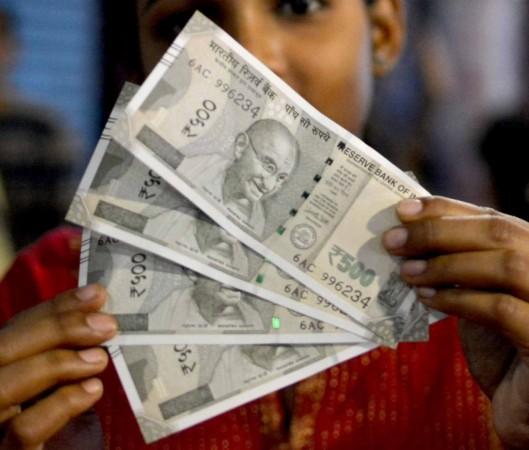
Citizens will be able to withdraw Rs 4,500 daily from ATMs from January 1 2017, as the Reserve Bank of India (RBI) raised the cash withdrawal limit from the existing Rs 2,500 to Rs 4,500. However, the weekly withdrawal limit remains unchanged at Rs 24,000 per week for individuals and Rs 50,000 for small traders.
The RBI, in a late night notification on Friday, said that weekly withdrawals must in the denomination of Rs 500 notes. "Such disbursals should predominantly be in the denomination of Rs 500," the notification from the central bank stated.
The RBI issued circulars to all banks earlier in the day, directing them to report to the central bank on the collection of the demonetised notes of Rs 500 and Rs 1,000 on Friday itself. All bank branches, which have accumulated old notes, have been directed to deposit them in any Issue Office of the RBI or a currency chest on December 31 itself.
"With the closure of the facility of exchange of SBNs (specified bank notes) at the close of business on December 30, 2016, all banks should report information on collection of SBNs on December 30, 2016 itself by email. Banks should make arrangements to gather the information from all its branches accordingly," the circular said.
The RBI has also allowed White Label ATM Operators (WLAOs) to source cash from retail outlets.
The earlier withdrawal limit was Rs 2,500 on a daily basis and Rs 24,000 on a weekly basis. The RBI said that they would retain the limit on cash withdrawals until there is sufficient supply of the new notes in the banking system.
"These restrictions will only go away when there's sufficient amount of bank notes in the system. Until and unless that happens, they cannot take away the restrictions. The moment they take away the restrictions, everybody will want to go and draw out a lot. That becomes a problem," SBI chairman Arundhati Bhattacharya told the Indian Express.
The Lok Sabha passed amendments to the Income Tax Act on Tuesday to prevent people from converting their black money into white by using bank accounts of other people. The Act enables the government to levy a higher penalty and tax rate on unexplained deposits of up to 85 percent.
The Cabinet also approved an ordinance on December 28 to levy a penalty of Rs 10,000 or five times the cash held — whichever is higher — on those who possess the old Rs 1,000 and Rs 500 notes beyond a specified limit after March 31. The Specified Bank Notes Cessation of Liabilities Ordinance makes the holding of old notes beyond the specified limit a criminal offence. A fine of Rs 50,000 or five times the amount will be levied on those who furnish wrong information while depositing the old currency notes between January 1 and March 31.
"After the period of exchange is over, the liabilities of the Reserve Bank and the guarantee of the Central Government towards the Specified Bank Notes will stand extinguished. Further, to prevent any continued parallel transactions with the SBNs by unscrupulous elements, after this period, holding, transferring and receiving SBNs will attract a fine of Rs.10,000 or five times the amount of the face value of the SBN involved in the contravention, whichever is higher," the notification stated.








